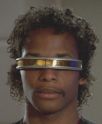|
Bug Squash posted:It's pretty easy to imagine something with an octopus like life cycle making a go of it. Get real smart real fast, have hundreds of offspring, and have a lifespan of under ten years or so. Take big risks everyday because life is cheap. Why? The next generation of math and science-less octopus is just going to try everything until it works. "Transferring knowledge" is literally what they cant do in this scenario.
|
|
|
|

|
| # ? May 24, 2024 15:48 |
|
Unoriginal Name posted:Why? The next generation of math and science-less octopus is just going to try everything until it works. "Transferring knowledge" is literally what they cant do in this scenario. High risk lifestyle doesn't really mesh well with zero knowledge transfer. If our octo-buddies can't even look at what's gone before and build on it, then you don't really have something that will get very far as a species. Maybe one in a trillion will somehow build a car in their lifetime, but if it can't be copied then that all goes up in smoke as soon as their crappy mathless engine explodes, like most of our early engines did. Maybe they could get surprisingly far each generation, given a large enough population, but interstellar space travel? Almost certainly not.
|
|
|
|
Bug Squash posted:that all goes up in smoke as soon as their crappy mathless engine explodes, like most of our early engines did. Again, another example that humans are totally willing and able to try and work things out experimentally. The number of inventions where we actually derived it mathematically first is pretty low. We almost always just throw ourselves into the meat grinder of trying a bunch of stuff till it stops killing us then working out the math years later to do clean up and improvements.
|
|
|
|
Owlofcreamcheese posted:Notice you are telling stories of stuff that got built anyway, we still built the slide and the resonant bridges. As a species we are like, a medium amount of good at not going on like that, but the fact we are imperfect implies a species could be much better or worse at it. Maybe they care much less about expending their people than we do, human history shows even we only sort of care. They're going to have to be better than us if they're going to travel to our planet and marvel down at us from above, given that we currently aren't even sure whether interstellar travel on a useful timeframe is even possible. Owlofcreamcheese posted:Again, another example that humans are totally willing and able to try and work things out experimentally. The number of inventions where we actually derived it mathematically first is pretty low. We almost always just throw ourselves into the meat grinder of trying a bunch of stuff till it stops killing us then working out the math years later to do clean up and improvements. Sure, but this is very different from what you were suggesting before. Figuring out that it works and then figuring out why it works is very different from not doing any figuring at all. We already have plenty of examples of species that do very little learning: much of the animal kingdom. Ants have been very successful on Earth, but I don't see them heading off to the stars anytime soon.
|
|
|
|
I feel like I wouldn’t bet money that every single human astronaut even knows trigonometry
|
|
|
|
Owlofcreamcheese posted:I feel like I wouldn’t bet money that every single human astronaut even knows trigonometry Some of them can do different eqs in thier heads. Atleast the Apollo era ones could. Rocketry is all controls duder and that math is tough.
|
|
|
Owlofcreamcheese posted:I feel like I wouldn’t bet money that every single human astronaut even knows trigonometry Wow congratulations you've discovered that education levels vary among individuals within an organization.
|
|
|
|
|
Donald Davidson's " radical interpretation" ( and his " on the very idea of a conceptual scheme") makes a compelling case that the Turing Test us valid, and applies to animals and alien life same as for AI.
|
|
|
|
A GIANT PARSNIP posted:Wow congratulations you've discovered that education levels vary among individuals within an organization. The point is we might not need to even find an alien astronaut to find a space man that said “I don’t know the Pythagorean theorem”
|
|
|
|
Owlofcreamcheese posted:The point is we might not need to even find an alien astronaut to find a space man that said “I don’t know the Pythagorean theorem” Well, for one, the Pythagorean Theorem is geometry, not trigonometry. For two, there's no doubt been a decline in the knowledge an astronaut has to have of math in their head since the Apollo program because computers are machines now instead of humans. I'd be loving shocked to find an astronaut that can't describe the Pythagorean theorem, the rest of the basics of geometry, or the basics of trigonometry. I wouldn't be shocked to find an astronaut who has a pedestrian or professional understanding of geometry or trigonometry but not enough of an understanding to teach them. That's two different levels of understanding.
|
|
|
|
Given the selection pool for astronauts, I'd say they'd all be able to do all of the math related to their jobs long hand, with minimal reference material. Some obviously more capably than others, but there would not be any astronauts that couldn't do/understand it at all.
|
|
|
|
This is kind of an irrelevant tangent, isn't it? The entire conversation is about whether it's reasonable to assume that an alien civilization would understand maths, not whether any individual in it is fluent in geometry.
|
|
|
|
I wouldn't say fully irrelevant in the sense that if we can assume that even at our relative primitive level, everyone invovled in actually being in space will carry that level of mathematical understanding. It is then likely that the member of an alien species that we contact if they come to us would more likely than not have a similar understanding of maths. Now there are tons of equally legitimate things that could prevent us from communicating, but you got to start somewhere.
|
|
|
|
Bug Squash posted:This is kind of an irrelevant tangent, isn't it? The entire conversation is about whether it's reasonable to assume that an alien civilization would understand maths, not whether any individual in it is fluent in geometry. I think it's reasonable to assume, and it'd be unlikely to meet or contact aliens that didn't have a similar understanding of math that we do, but I don't think it's as simple as it being truly impossible. I wouldn't even assume it is totally impossible for situations where insentient creatures can end up traveling in space.
|
|
|
|
Even if an individual aliens were bad at maths, they would presumably be able to operate a camera and a phone (or an equivalent) so that whoever is in charge can get someone who is better at maths on the line. Unless you assume that aliens have mastered space travel to the point where dumbass tourists are the first to visit us.
|
|
|
|
Self sustaining generation ship, we could meet aliens who are loving morons. We could learn from their propulsion system I suppose, but its entirely possible they wont understand anything.
|
|
|
|
There are also scenarios, like in Hyperion by Dan Simmons where civilization is basically run and managed by benevolent AI that controls technological progress and understanding. Individuals in society have no clue, nor capacity to understand the tech. Presumably though, if we were to run into someone from that kind of civilization, they'd just put the AI in view of us even though the member of the species knew fuckall nothing.
|
|
|
|
suck my woke dick posted:Even if an individual aliens were bad at maths, they would presumably be able to operate a camera and a phone (or an equivalent) so that whoever is in charge can get someone who is better at maths on the line. Unless you assume that aliens have mastered space travel to the point where dumbass tourists are the first to visit us. Maybe we're in an interstellar preserve because the aliens want to keep some interesting baby species around, and the ones we would see are basically the rear end in a top hat teenagers ATV-ing through a state park. They're going to show up, try not to giggle as they send us plans to build a giant orbital station in the shape of their sex organs, and then beat it before the rangers show up.
|
|
|
|
Owlofcreamcheese posted:I feel like I wouldn’t bet money that every single human astronaut even knows trigonometry Yeah, but someone on the planet has to know trigonometry to build the rocket carrying that astronaut, as well as to program the rocket to carry out orbital maneuvers. I can drive a car around despite not knowing how to build an internal combustion engine, but that's because plenty of other people know how to build internal combustion engines.
|
|
|
|
I mean, space travel is actually kind of a special case where you really aren't doing it without a reasonable understanding of math as a civilization. You could probably build a rocket through trial and error and you might even be able to put it into orbit for a while, but you aren't actually getting anywhere by accident because the distances are too vast and the targets are too (relatively) small. Some random alien astronaut might not understand any of it, but someone did.
|
|
|
Owlofcreamcheese posted:The point is we might not need to even find an alien astronaut to find a space man that said “I don’t know the Pythagorean theorem” I agree, and I don’t believe drawing a triangle in the dirt is going to do much anyway. If you come across an alien I think you should act like a normal friendly human, because if they’re peaceful they either already know what that looks like through monitoring our media and will appreciate the fact that you are a normal friendly human, or you’re the example they’ll use as generic human going forward. If they’re not peaceful your dirt triangle isn’t going to help you.
|
|
|
|
|
Dameius posted:There are also scenarios, like in Hyperion by Dan Simmons where civilization is basically run and managed by benevolent AI that controls technological progress and understanding. Individuals in society have no clue, nor capacity to understand the tech. Presumably though, if we were to run into someone from that kind of civilization, they'd just put the AI in view of us even though the member of the species knew fuckall nothing. Man you gotta reread Hyperion a bit more thoroughly if what you remember of it is that the AIs in it were benevolent (But don’t buy em Dan Simmons sucks)
|
|
|
|
"Oh poo poo, that one knows triangles! Kill it before it tells the others."
|
|
|
|
Flowers For Algeria posted:Man you gotta reread Hyperion a bit more thoroughly if what you remember of it is that the AIs in it were benevolent I'll admit, it was years and years since I read it, and I was focused on how it was letting people use the gates and internet and poo poo that it developed and nothing else about the plot.
|
|
|
|
Flowers For Algeria posted:Man you gotta reread Hyperion a bit more thoroughly if what you remember of it is that the AIs in it were benevolent On one hand it get's tiring to keep up who's a shithead and who isn't, on the other hand i don't want to support shitheads. What's wrong with Simmons? If you want benevolent AI overlords read the Culture books by Iain M Banks. If you want really weird aliens with different cognition read Blindsight by Peter Watts. (has really weird humans too)
|
|
|
|
This article on a new theory on the origin of life seems relevant to this topic as it implies aliens would be as common as physics allow them to be.quote:From the standpoint of physics, there is one essential difference between living things and inanimate clumps of carbon atoms: The former tend to be much better at capturing energy from their environment and dissipating that energy as heat. Jeremy England, a 31-year-old assistant professor at the Massachusetts Institute of Technology, has derived a mathematical formula that he believes explains this capacity. The formula, based on established physics, indicates that when a group of atoms is driven by an external source of energy (like the sun or chemical fuel) and surrounded by a heat bath (like the ocean or atmosphere), it will often gradually restructure itself in order to dissipate increasingly more energy. This could mean that under certain conditions, matter inexorably acquires the key physical attribute associated with life. This is a fascinating angle on why abiogenesis happens.
|
|
|
|
LtStorm posted:This article on a new theory on the origin of life seems relevant to this topic as it implies aliens would be as common as physics allow them to be. Of all the places in the universe the earth is pretty up there for being extremely room temperature and not having ultimately much of a temperature range. The hottest spot and coldest spot aren't even 200F apart.
|
|
|
|
Owlofcreamcheese posted:Of all the places in the universe the earth is pretty up there for being extremely room temperature and not having ultimately much of a temperature range. The hottest spot and coldest spot aren't even 200F apart. Earth isn't really anything special in terms of temperature variation. Venus has effectively none at all thanks to its soupy atmosphere and more or less non-existent tilt. Mars is pretty close to Earth in terms of range. Titan has very, very little variation. It takes special circumstances to have really wild temperature swings.
|
|
|
|
Owlofcreamcheese posted:Of all the places in the universe the earth is pretty up there for being extremely room temperature and not having ultimately much of a temperature range. The hottest spot and coldest spot aren't even 200F apart. The Earth is only room temperature from an anthrocentric viewpoint. "Room temperature" is a silly concept that didn't exist until 1970 or so. Also the hottest and coldest spots to be found without leaving North America are ~215 F apart. Using the entire planet, the temperature range is ~265 F. The hottest and coldest spots on Mars are also ~265 F apart. Venus has a very consistent temperature due to its runaway greenhouse effect, as Paradoxish noted. There are no other good comparisons in our solar system; Mercury and the Moon have larger temperature variations, but also have no atmospheres that would control that in any way. The rest of the planets are gas giants save for Pluto which is so far away from the Sun it has very little temperature variation at all--it's always super cold (also it has no atmosphere). Of all the places in the universe the earth only looks pretty up there because it's where we evolved. We look for other planets like it because we know an intelligent species could exist on them based on our brilliant statistical analysis (n = 1). We have no clue what range of planets life could actually exist on. I posted earlier in the topic about the idea of silicon-based life that would likely benefit from colder or hotter temperatures than what we like.
|
|
|
|
LtStorm posted:
Yeah, but 265 is very little. The sun is millions of degrees different layer to layer, Venus atmosphere is like thousands in variations. Even on earth most of the ocean is in a narrow range compared to the rocks or the lava.
|
|
|
|
Owlofcreamcheese posted:Yeah, but 265 is very little. The sun is millions of degrees different layer to layer, Venus atmosphere is like thousands in variations. Even on earth most of the ocean is in a narrow range compared to the rocks or the lava. Okay? 265 degrees if variation is very little compared to the loving Sun, which isn't a planet. An excellent point. And Venus has more temperature variation than the Earth if and only if you specifically count its upper atmosphere, thus proving...what exactly? You didn't mention Mars. What's your amazing point about Mars, with its pretty much identical range (but not extrema) of temperatures?
|
|
|
|
Owlofcreamcheese posted:Yeah, but 265 is very little. The sun is millions of degrees different layer to layer, Venus atmosphere is like thousands in variations. Even on earth most of the ocean is in a narrow range compared to the rocks or the lava. Venus does not have thousands of degrees of variation between its atmospheric layers. It ranges from around 450C at the surface down to around 0C in the troposphere. Earth has about a 200C of variation from surface to troposhere. The only thing I can think of that you might be referring to is the thermosphere, but Earth's thermosphere temperature can vary by like 1500C so uh.
|
|
|
|
LtStorm posted:Okay? 265 degrees if variation is very little compared to the loving Sun, which isn't a planet. An excellent point. Yeah, Mars is another example of it not seeming to be much of a thermodynamic inevitability.
|
|
|
|
Owlofcreamcheese posted:Yeah, Mars is another example of it not seeming to be much of a thermodynamic inevitability. Why's that?
|
|
|
|
LtStorm posted:Okay? 265 degrees if variation is very little compared to the loving Sun, which isn't a planet. An excellent point. Its owlofcreamcheese. He never, ever, ever admits fault or grows his argument past restating it despite being told where its flawed. Like when they claimed venus proved their point after 2 people already told them it was a counterexample. Anyway, wouldn't heat be relative in that thekry of abiogenesis? So like life is as likely to evolve on venus, mars, europa, etc. Even if they vary quite a bit from earth's temperature? Heck, possibly in some hypothetical area of a star where the temperature range didn't shift too much, but the particles remained within the area for an extended period of time? Or in an asteroid that's being heated steadily by a stat? That seems to suggest quite a bit of life out there.
|
|
|
|
LtStorm posted:Why's that? Not much life on Mars.
|
|
|
|
The heat that made abiogenesis inevitable on earth was the collision with a body the size of mercury that knocked the old core ( the moon) into orbit.
|
|
|
|
This is kind of a sloppy rehash of the idea of viewing life as an entropy machine. Matter will naturally rearrange to more efficiently process a gradient of entropy. Certain mediums will allow for incredible complexity to accomplish this. This thing we call life is a system that has managed to compartmentalise itself, achieve reproduction and undergo evolution.
|
|
|
|
If life was readily capable of evolving in subjectively "harsh" environments relative to Earth, wouldn't we have found some by now, even just in the solar system itself? Then again, we've found life in subjectively "harsh" environments on Earth itself, tho perhaps they evolved from life that originally evolved in less harsh environments.
|
|
|
|

|
| # ? May 24, 2024 15:48 |
|
The collision also gave us the magnetic field that kept the atmosphere from being blown away like Mar's. That and it caused the plate tectonics and associated volcanic activity and the tilted spin that makes seasons.
|
|
|


















 I CANNOT EJACULATE WITHOUT SEEING NATIVE AMERICANS BRUTALISED!
I CANNOT EJACULATE WITHOUT SEEING NATIVE AMERICANS BRUTALISED!








